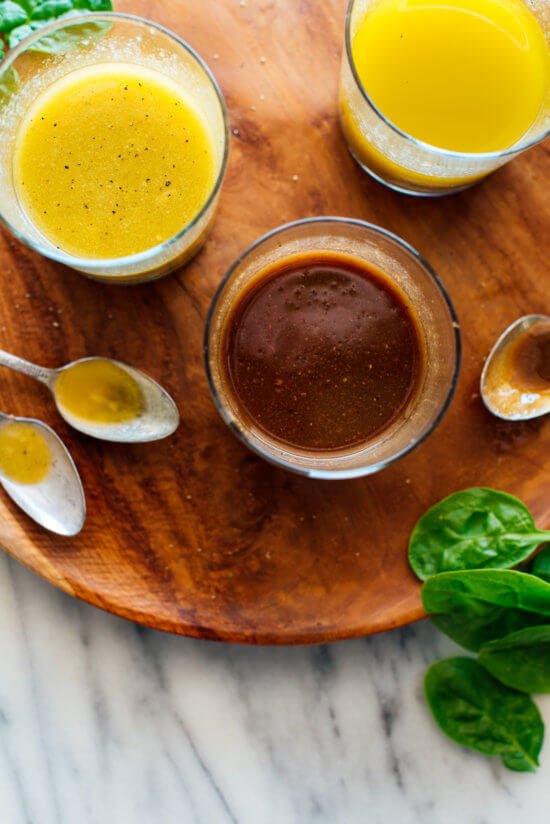
Here’s my go-to vinaigrette recipe! It’s so easy to make and tastes way better than store-bought dressings. You can change up the flavors by choosing the vinegar that suits your salad best. Recipe yields 3/4 cup dressing, enough for about 6 medium salads (assuming 2 tablespoons per salad).
Ingredients
Instructions
- In a liquid measuring cup or bowl, combine all of the ingredients. Stir well with a small whisk or a fork until the ingredients are completely mixed together.
- Taste, and adjust as necessary. If the mixture is too acidic, thin it out with a bit more olive oil or balance the flavors with a little more maple syrup or honey. If the mixture is a little blah, add another pinch or two of salt. If it doesn’t have enough zing, add vinegar by the teaspoon.
- Serve immediately, or cover and refrigerate for future use. Homemade vinaigrette keeps well for 7 to 10 days. If your vinaigrette solidifies somewhat in the fridge, don’t worry about it—real olive oil tends to do that. Simply let it rest at room temperature for 5 to 10 minutes or microwave very briefly (about 20 seconds) to liquify the olive oil again. Whisk to blend and serve.
Notes
Balsamic vinegar: Makes a bold, slightly sweet dressing that is wonderful on green salads with fruit, such as apples, strawberries or peaches.
Red wine vinegar: Packs a punch and works well with other bold flavors and bright veggies, like tomatoes, bell peppers, cucumber, cabbage and more (think Greek salads).
White wine vinegar: This is a more mellow vinegar and it’s especially nice with more delicate flavors like cucumber and sweet corn. It’s lovely on just about every green salad out there.
Greek/Italian variation: Use red wine vinegar. Add 1 to 2 teaspoons dried oregano and, optionally, a pinch of red pepper flakes.